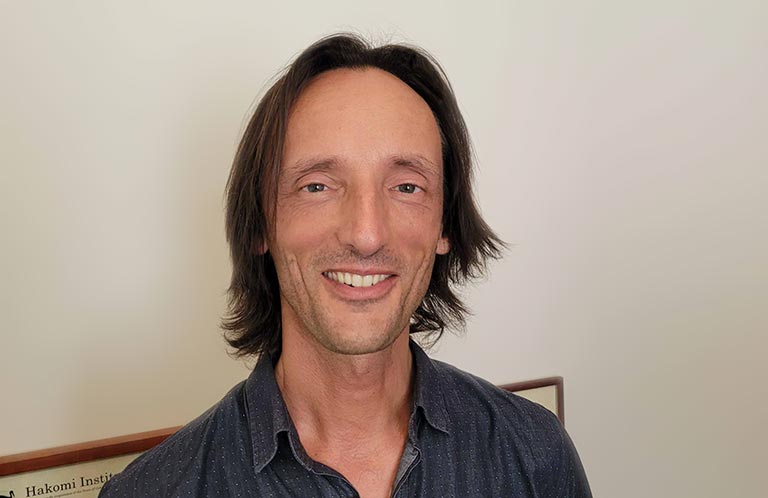Ajay draws from a range of proven psychotherapy disciplines including Somatic Therapy and Embodied Mindfulness approaches such as Hakomi psychotherapy. These approaches shape the development of a personalised session program matched to your individual needs.
For those interested in psychotherapy, we are likely to start by learning some coping strategies to give some immediate help and relief from the stresses of life. Then we will work deeply on how core beliefs have been formed and how to change them. These beliefs have often been held since early childhood.
The beauty of working with mindfulness and somatically (experiences felt in the body) is that you do not have to painfully relive past events or tell your whole life story to resolve things. Instead, you can safely get in touch with wounded parts of yourself and with unresolved experiences. We do this by finding how they are held in your mind, body and emotions now, in the present.
Cutting edge psychological research shows that we hold trauma and negative past experiences in our bodies and that mindfulness and Somatic Therapy can be helpful to resolve these experiences.
Ajay is trained in Somatic Therapy, attending over four years of in depth training. Hakomi is mindfulness based Somatic psychotherapy.

 Ajay Hawkes
Ajay HawkesMedicare rebates available
So what is Somatic psychotherapy? In body-centred or Somatic psychotherapy, we will talk about what is happening in your life NOW that you find difficult, and how you feel it in your body NOW. Since we hold our past in our body and emotions, this felt sense can help us to access past experiences that are still affecting us.
We can then find out which limiting beliefs were created by these experiences and how that feels. When you experience our limiting beliefs in a felt way, as well as intellectually, it goes much deeper. You can see how these beliefs have been shaping your life. We can also find out where the belief originated from and what it was in your life that created it.
Perhaps you feel stressed or angry, so we will find out how that feels in your body. It might be that the stress or anger is a way of staying safe or getting your needs met that you learnt a long time ago. By then staying with the feeling we can learn what is at the root of those feelings, beliefs and behaviours.
We might access the felt sense of a hurt child inside you and deliver a sense of safety to that child, if that is what they are lacking. Or perhaps your inner child needs to know that their needs can be met. When we meet these parts of ourselves, in a mindful state of awareness, we can provide a new healing experience that can then replace the negative feeling. In fact we can rewire the neural pathways in your brain to remove the limiting core belief. We can give new information to our whole nervous system that we are safe and can get our needs met.
This is a very powerful way of changing your beliefs about yourself. It is a very different process from intellectually understanding your past. That can give you insight into what happened, but insight alone is rarely enough to change things, we need to feel differently about things. That is when the real change happens.
We come to know how it feels to be safe, to be loved, to have our needs met and to know that we are good enough, simply as we are. That can feel like a huge relief and something we have wanted our whole lives, often without even knowing it! Then we go out into the world with new information and a new understanding of ourselves.
When we feel differently about ourselves, we can also see events and other people with more clarity. That clarity helps us to make better decisions, to act in new and more useful ways. When our actions change, our life changes and we start to feel more nourished and satisfied by life, to finally be able to relax and feel fulfilled by events.
“Mindfulness means paying attention in a particular way: on purpose, in the present moment, and non-judgmentally.” Jon Kabat-Zinn
Mindfulness can help you to stay centred and grounded in challenging situations so that you get less triggered. This helps enormously as then you can find much better ways of responding to life’s challenges. Mindfulness can be easily learned through counselling as a coping strategy to use in your day to day life. It can also be used within a therapy session to access difficult material in a safe and meaningful way.
© 2016 - 2024 | Uplift Counselling | WordPress Development by Blue Kelpie